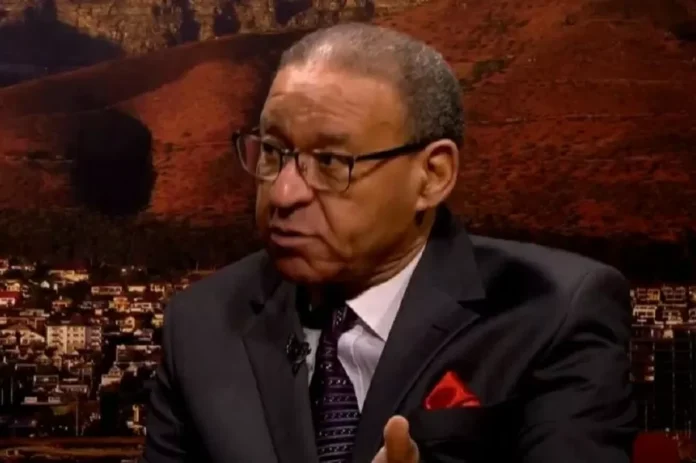Rev. Allan Boesak, a prominent South African anti-apartheid activist and theologian, has recently made headlines for his rejection of the term “uprising” to describe the events of June 16, 1976 in Soweto. Instead, he insists that it should be called what it truly was – a massacre.
The Soweto Uprising, as it is commonly known, was a pivotal moment in the fight against apartheid in South Africa. On that fateful day, thousands of black students took to the streets to protest against the government’s decision to enforce Afrikaans as the medium of instruction in schools. The peaceful protest quickly turned violent as police opened fire on the unarmed students, resulting in the deaths of hundreds of young people.
For years, the term “uprising” has been used to describe this tragic event. However, Rev. Boesak, who was a young activist at the time, believes that this term does not accurately reflect the true nature of what happened that day. In an interview with a local news outlet, he stated, “Calling it an uprising implies that it was a planned and coordinated act of rebellion. But in reality, it was a massacre of innocent children who were simply fighting for their right to education.”
Rev. Boesak’s rejection of the term “uprising” has sparked a heated debate among South Africans. Some argue that the term is appropriate as it signifies a moment of resistance and defiance against the oppressive apartheid regime. Others, however, support Rev. Boesak’s stance and believe that it is time to acknowledge the true nature of what happened on that day.
One of the main reasons for Rev. Boesak’s insistence on using the term “massacre” is to honor the memory of those who lost their lives. He believes that by using the term “uprising,” the true gravity of the event is downplayed. “We must call it what it was – a massacre of innocent children. We owe it to them to speak the truth and not sugarcoat it with a more palatable term,” he stated.
Rev. Boesak’s rejection of the term “uprising” also serves as a reminder of the brutal and violent tactics used by the apartheid government to suppress any form of dissent. The Soweto Massacre was not an isolated incident but rather a reflection of the systemic violence and oppression faced by black South Africans under apartheid.
Furthermore, Rev. Boesak’s stance challenges us to rethink the language we use to describe historical events. The term “uprising” has often been used to romanticize and glorify acts of resistance, but in this case, it does a disservice to the victims and their families. It is crucial to use accurate and truthful language when discussing such significant moments in history.
Rev. Boesak’s rejection of the term “uprising” has also sparked a larger conversation about the language used in South Africa’s history books. Many argue that the term “uprising” has been used to downplay the atrocities committed by the apartheid government and to paint a false narrative of resistance against oppression.
In light of this, it is time for us to reexamine the language used in our history books and to ensure that it accurately reflects the truth. As Rev. Boesak stated, “We cannot change the past, but we can change how we talk about it. It is our responsibility to speak the truth and honor the memory of those who sacrificed their lives for the fight against apartheid.”
In conclusion, Rev. Boesak’s rejection of the term “uprising” and insistence on calling it a massacre is a powerful reminder of the true nature of the Soweto events. It is a call to action for us to use accurate and truthful language when discussing our history and to honor the memory of those who lost their lives in the fight against apartheid. Let us not shy away from the truth, but rather embrace it and learn from it as we continue to strive for a more just and equal society.

